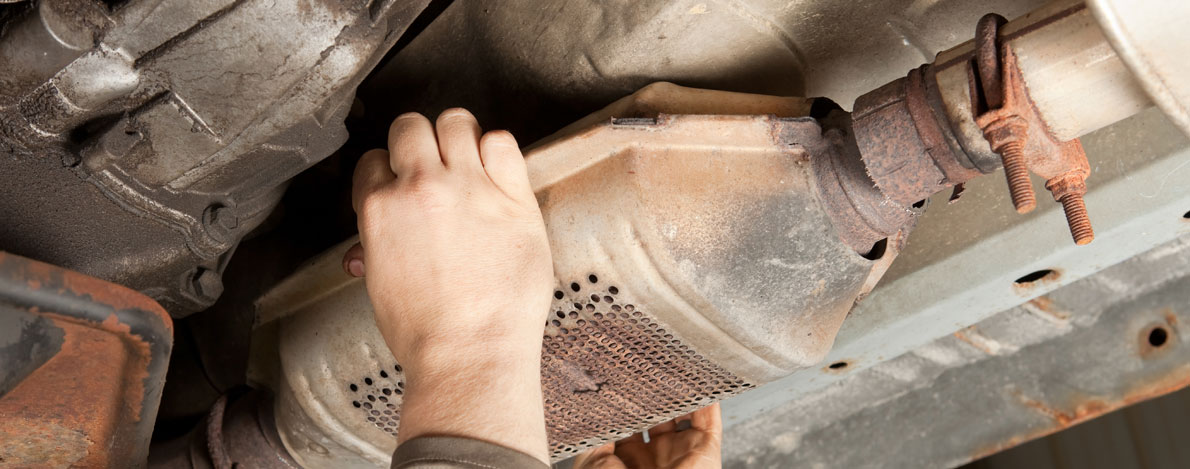Catalytic Converter Thefts Are on the Rise
A catalytic converter is a device that neutralizes the harmful gases in engine exhaust that contribute to air pollution and smog. Mandated in the U.S. since 1975, catalytic converters are bolted to the underside of cars or trucks as part of their exhaust system.
Across Virginia—in fact, across the nation—catalytic converter thefts are on the rise. These devices are appealing to thieves because they are quick and easy to steal, and they contain metals more precious than gold—platinum, rhodium and palladium. A metal recycler might pay $50 to $250 for a catalytic converter and up to $800 for a device from a hybrid vehicle. But even if a thief’s goal isn’t to extract those metals, used catalytic converters sell for a good price from junkyards and scrap dealers.
The loss of a catalytic converter is no small matter to the vehicle owner. Depending on the type of vehicle you have, it can cost between $1,000 and $2,500 or more to replace a catalytic converter that is stolen.
Stealing a catalytic converter is not particularly difficult. This device can typically be removed in just a few minutes by using a saw or a wrench. Slicing through the piping on both sides of the converter before it’s pulled off is the most common method. SUVs, pickup trucks, buses and vans are likely targets as these vehicles sit higher off the ground, making it easier for the thief to slide underneath.
Take Action to Protect Your Vehicle.
There are a number of steps you can take to protect your vehicle and reduce the likelihood of having your catalytic converter stolen.
1) Park in well-lit areas.
If you have to leave your car outside, the National Insurance Criminal Bureau (NICB) recommends parking in a well-lit area and making sure to set your vehicle alarm. Installing a bright motion sensor light may also dissuade potential thieves.
2) Etch an identification number onto your catalytic converter.
Etching a unique identification number onto your catalytic converter may serve as a deterrent to theft. The idea is that a thief who sees the etched device may move on to an easier target. Etching also helps alert scrap dealers that a catalytic converter was stolen, and it makes it easier to identify the owner. Police in some communities have joined with local repair shops to sponsor etching events.
3) Install an anti-theft device.
Etching and parking in a well-lit area might make your catalytic converter less attractive to thieves, but these preventive measures don’t protect the part itself. Welding your catalytic converter in place or installing a metal shield or cage that is bolted to the vehicle frame will make removal difficult. A car alarm that is sensitive to the vibrations caused when attempting to remove a catalytic converter can also discourage thieves.
Time to take action.
The National Insurance Crime Bureau reports that the average number of monthly thefts of catalytic converters jumped from 282 in 2019 to 1,203 in 2020. In December 2020 alone, 2,347 catalytic converter thefts were reported to U.S. auto insurers, according to NICB data.
The Virginia State Police Help Eliminate Auto Theft (HEAT) program is working in collaboration with law enforcement agencies across Virginia to address the problem of catalytic converter thefts by increasing public awareness and education.
The HEAT Reward program offers rewards of up to $25,000 for information leading to the arrest of any individual responsible for the theft of a vehicle or vehicle parts in Virginia—including catalytic converters. Please join us in the fight against vehicle theft!
